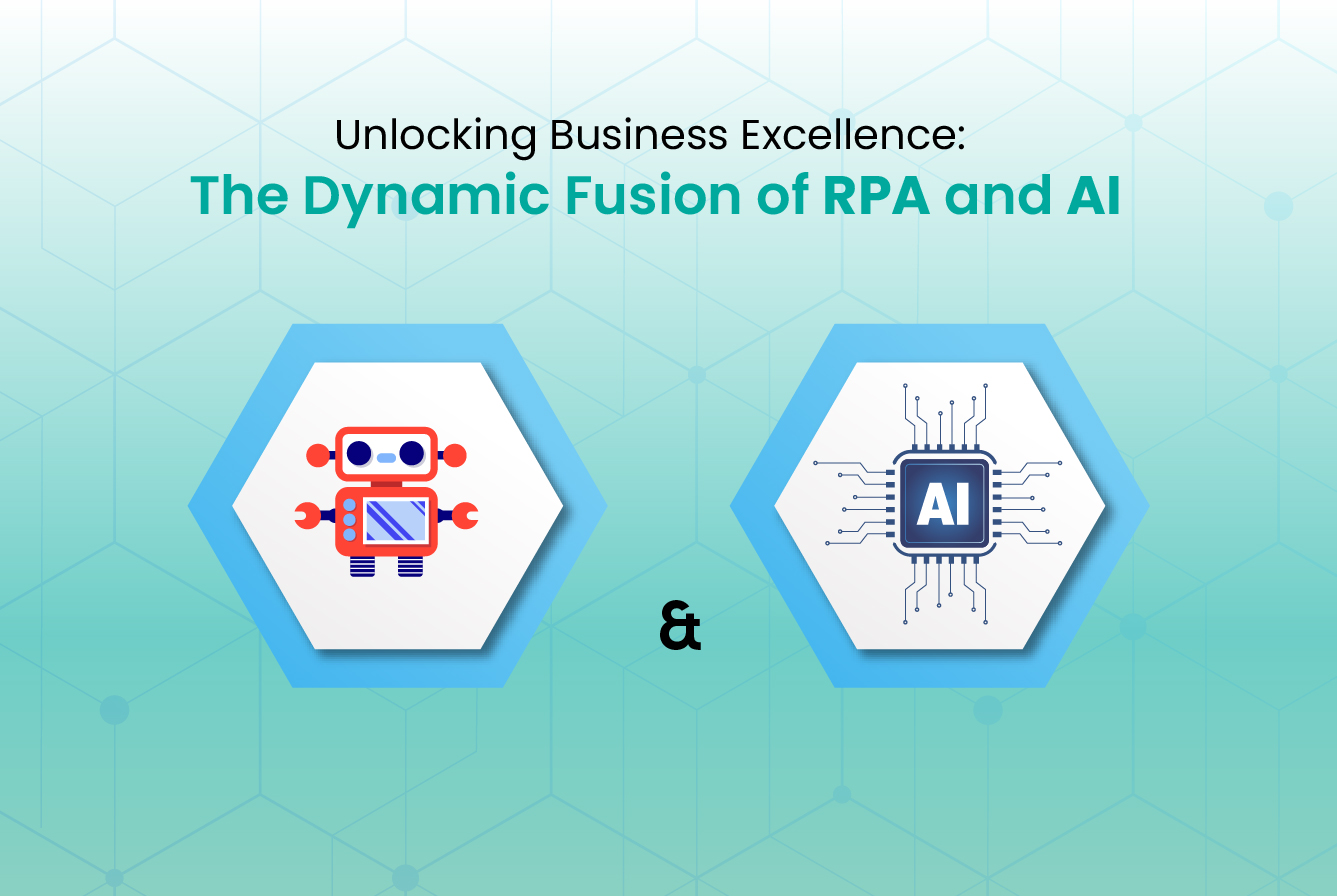Unlocking Business Excellence: The Dynamic Fusion of RPA and AI
Artificial intelligence (AI) and robotic process automation (RPA) have become revolutionary technologies that may greatly help companies in a wide range of industries. In this post, we’ll look at how RPA and AI can help businesses become more inventive, productive, and efficient—all of which will lead to better results.
1. The Power of Task Automation
2. Optimizing Operations for Business Excellence
3. Improved Customer Satisfaction
4. The Power of Data Analysis and Insights
5. Compliance and Mitigation Strategies
1. The Power of Task Automation:
RPA’s capacity to automate routine and boring operations is one of its main advantages. This lowers the possibility of mistakes and frees up workers to concentrate on more creative and strategic areas of their work. By allowing computers to learn from data, AI enhances RPA by facilitating better task execution over time.
2. Optimizing Operations for Business Excellence:
RPA’s capacity to automate routine and boring operations is one of its main advantages. This lowers the possibility of mistakes and frees up workers to concentrate on more creative and strategic areas of their work. By allowing computers to learn from data, AI enhances RPA by facilitating better task execution over time.
3. Improved Customer Satisfaction:
AI is essential to improving customer experience using chatbots and virtual assistants, among other technologies. These AI-powered systems can respond to consumer inquiries, anticipate their needs, and offer immediate, personalized service. Higher levels of client loyalty and satisfaction follow from this.
4. The Power of Data Analysis and Insights:
Businesses can obtain important insights thanks to AI’s speedy analysis of large volumes of data. While AI algorithms may find patterns, trends, and correlations, RPA can gather and organize data. Businesses may find areas for improvement and make well-informed decisions with the help of this data-driven approach.
5. Compliance and Mitigation Strategies:
By ensuring consistency in task execution, RPA lowers the possibility of human error. However, artificial intelligence (AI) can help with oversight and guaranteeing adherence to rules. When combined, these technologies help firms reduce risk and comply with regulatory requirements as well as industry standards.
Corblocks Team:
Corblocks team is here to automate and streamline your business processes. By using intelligent bots to handle ticket routing, answer questions, guide consumers to knowledgebase articles, and expedite the escalation process, you can turn your customer service into a round-the-clock help desk.
Save time, satisfy SLAs consistently, improve operational efficiency, and surpass client expectations with our IT support automation services. As we reimagine and improve your business processes, you will see the revolutionary power of Corblocks.
Conclusion:
In conclusion, strong technologies like RPA and AI have the potential to completely transform the way businesses run. The benefits are numerous and significant, ranging from promoting creativity and streamlining repetitive operations to enhancing client experiences. RPA and AI integration into company operations will be essential for maintaining competitiveness and fostering long-term success as companies continue to traverse an increasingly digital market.
